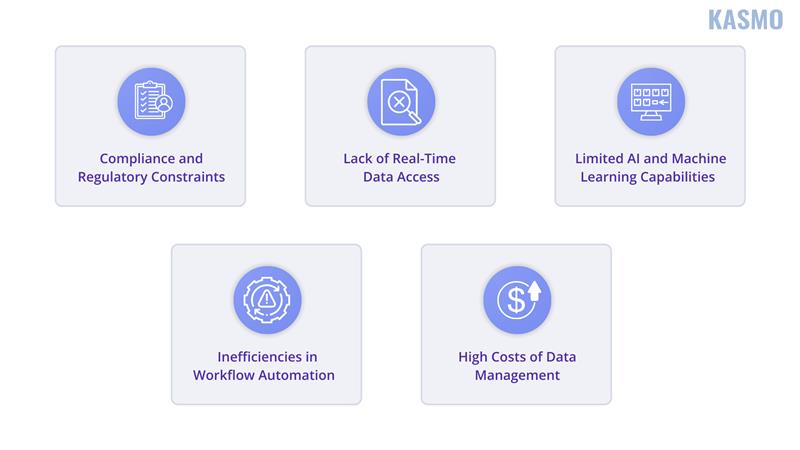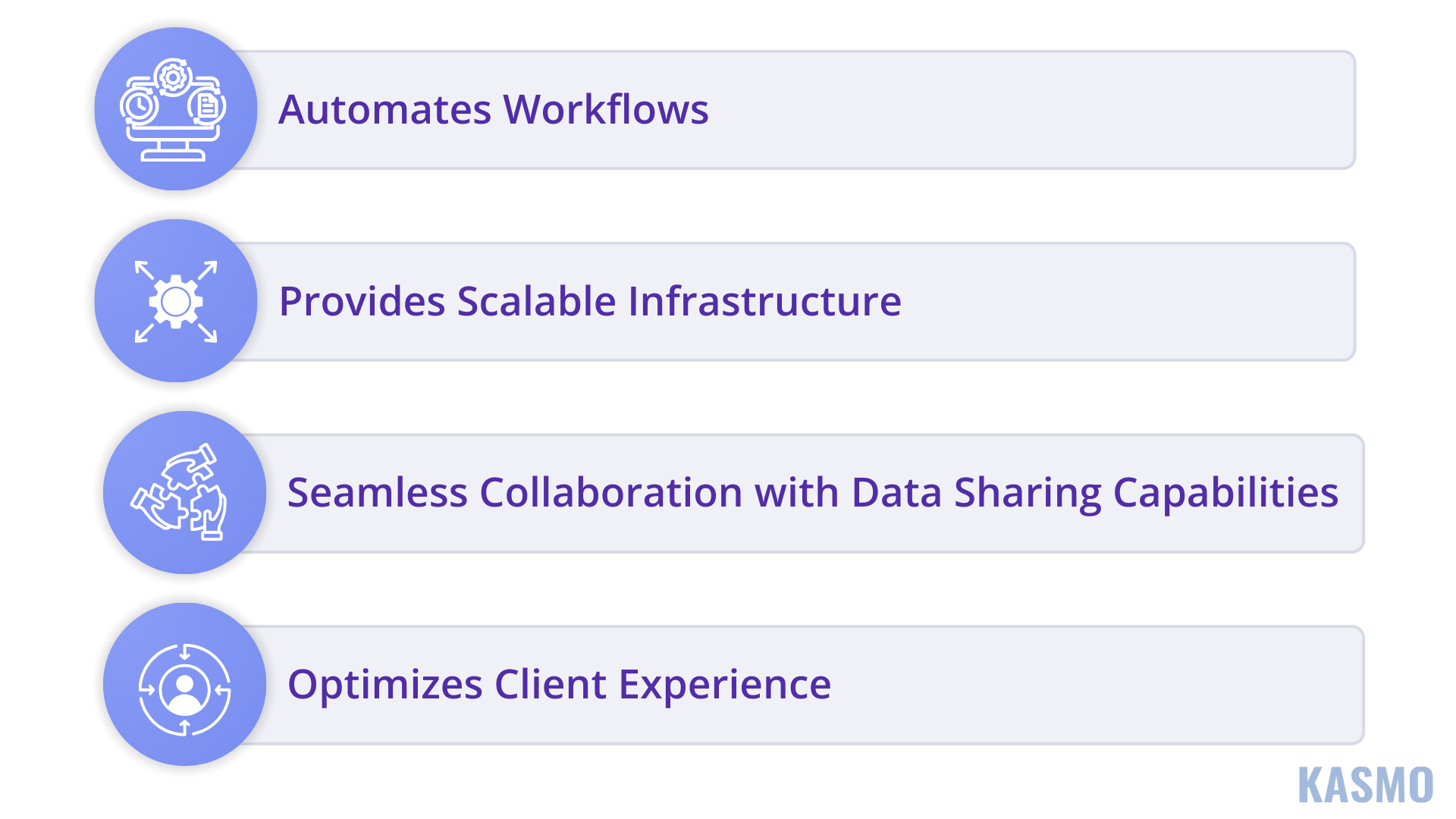Introduction
If you are looking to understand how you can get long-term financial success, you need a tailored and personalized financial planning. Consumers globally have become aware of the needs and demands they want their banks and financial services to fulfill. Therefore, the BFSI sector is aggressively investing in tools and solutions that can help in providing investment ideas and trading options to their customers leading to improved customer services and reduced customer churn.
However, it is crucial to understand how financial services can provide personalized financial planning to their clients while tackling several AI challenges and other complex industry issues.
Providing personalized financial planning involves tailoring financial strategies to meet the unique goals of customers. Unlike the usual financial advice, when businesses provide tailored financial plans, they take several factors into account -such as income, expenses, risk tolerance, and future objectives of the individual to create a comprehensive roadmap.
Financial services need to integrate technology to provide the best advice to their clients. By leveraging cloud solutions, data and modern, flexible architecture, financial services firms can provide data-driven insights to their customers.
Why Financial Services Need to Implement Modern Technology and Solutions to Become Data-Driven?
Financial firms need to collate both unstructured and structured data by leveraging modern and advanced technology and solutions. Utilizing their data, financial institutions can make more informed decisions, optimize operations, and enhance customer experiences.
Data-driven insights allow financial institutions to make faster and more precise decisions. Whether assessing credit risk, or determining investment strategies, the data collected helps firms minimize errors and enhance profitability.
With data, financial services can understand customer behavior. This helps in providing personalized financial planning to their customers, improving customer satisfaction and building loyalty.
By analyzing data financial services can get real-time insights into market trends, potential frauds, or credit defaults. They can also proactively identify risks and mitigate them, reducing losses and maintaining regulatory compliance.
Leveraging data facilitates financial firms streamline their operations, reducing costs and increasing productivity. With data+AI, manual tasks are automated, allowing the employees to focus on solving more complex industry challenges.
Challenges Faced by Financial Services While Creating Personalized Financial Planning
As financial services strive to offer personalized planning to their clients, they often face technological, operational, and regulatory challenges. These obstacles impede their ability to deliver tailored, data-driven financial solutions that meet the needs of their clients.
Data Silos and Fragmentation
Data fragmentation and siloed data are the primary barriers for financial services, when they aim to create a personalized plan for their clients. Many firms still use legacy architecture and systems that do not easily integrate with new technologies, leading to high downtime error. Maintaining these legacy architectures are also costly, which prevents businesses to cater to every client’s needs.
Fragmented and siloed data hinders financial services from getting a 360-degree view of their clients. Without a unified customer profile, they face difficulty in delivering a consistent and personalized experience.
Inconsistent Data Quality and Accuracy
While financial institutions have access to vast amounts of client data, they need to ensure that the customer data remains accurate and protected. Often, data is entered manually or pulled from outdated systems, leading to discrepancies. Inaccurate data prevents financial services from providing personalized financial planning. Inaccurate data hinders organizations from providing customers with the best experience, as it leads to incorrect recommendations of financial services and plans.
Here are some challenges faced by financial services while dealing with data:

How Snowflake Addresses These Challenges and Facilitate Personalized Financial Planning?
Snowflake’s platform provides a unified, secure, and scalable solution for financial services organizations wanting to overcome fragmented and siloed data and streamline their operations. By centralizing customer, account, and risk data into a single, governed data cloud, Snowflake facilitates financial services organizations to get a 360-degree overview of their customers.
Here’s why financial services firms should think about leveraging Snowflake:
Facilitates Seamless Integration of Data Sources
With Snowflake, financial services can integrate both internal data (e.g., transaction history, risk profiles) and external data (e.g., third-party market, demographic, ESG, and macroeconomic data) into a single, cloud platform. This enables firms to gain deeper insights into individual customer profiles.
Snowflake also allows financial services tailor strategies that are specific for every individual. By removing data silos, this cloud data platform facilitates easy access and analysis of data, making it possible for organizations to build robust and personalized financial plans.
Enhances Risk and Compliance Management
Snowflake’s strong data security, governance controls, and compliance features—such as dynamic data masking, encryption, and Data Clean Rooms—enable financial institutions to protect sensitive customer data while still leveraging it to build personalized plans. These Snowflake features ensure that financial services maintain data integrity and meet regulatory standards, such as GDPR or MiFID II, while making tailored financial plans.
Provides Advanced Analytics for Creating Personalized Financial Plans
By combining Snowflake’s data cloud with advanced analytics tools, financial services firms can run complex models and simulations to create personalized financial planning for clients. Whether it’s portfolio optimization, risk modeling, or retirement planning, Snowflake supports the use of AI and machine learning to offer next-best-action insights, helping advisors provide highly customized financial plans that reflect each client’s unique challenges and goals.
Let’s look at some more benefits of leveraging Snowflake AI Data Cloud:

Why Choose Kasmo for Implementing Snowflake in Your Organization?
Kasmo is the ideal partner for financial services which are looking to unlock the full potential of Snowflake’s cloud data platform. As a Snowflake Premier services partner, Kasmo leverages its deep expertise in data integration and architecture to help clients eliminate data silos and streamline their processes.
With a global team of 250+ certified consultants and a strong track record of successful deployments, Kasmo empowers businesses to optimize their data workloads and scale seamlessly. Kasmo’s unique accelerators, such as OLAF (AI-powered chatbot solution), provide businesses with solutions in more than 120+ languages, making the financial firms capabilities to provide services to their customers.
Kasmo’s accelerators are designed to reduce downtime, increase operational efficiency, and deliver personalized financial planning solutions that align with specific business needs. By choosing Kasmo for Snowflake implementation, financial services firms can gain access to a range of innovative solutions that revolutionize data strategies for clients.
Kasmo’s ability to seamlessly integrate Snowflake into existing systems, combined with its reusable frameworks, accelerates the entire implementation process and makes it cost-effective.



